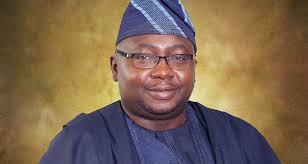Copyright bizwatchnigeria

The Federal Government has called on Nigeria’s 36 states to assume greater responsibility for power generation, transmission, and distribution, as part of efforts to resolve the nation’s persistent electricity crisis. Speaking at the Nigeria Energy Leadership Summit in Lagos, Minister of Power Adebayo Adelabu said the Electricity Act 2023 has paved the way for states to create their own power markets and regulatory systems, ending decades of over-centralisation in the energy sector. “Centralised power management cannot work for a country as vast as Nigeria,” Adelabu said. “The 2023 Act devolves regulatory powers to the states, enables subnational markets, promotes competition, and invites private sector participation across the value chain.” Adelabu explained that the new framework empowers state governments to establish electricity generation and distribution companies while collaborating with private investors. He noted that 15 states have already secured regulatory autonomy, with Enugu State becoming the first to fully operationalise its independent electricity market through the Enugu Electricity Regulatory Commission. He urged other states to follow suit, emphasising that “no federal ministry can manage stable electricity from Abuja for every state.” He encouraged governors to challenge Distribution Companies (DisCos) and the Transmission Company of Nigeria (TCN) to improve grid performance and service delivery. The minister also underscored the need for massive private sector investment, noting that government funding alone cannot sustain the power sector. “Education, health, defence, and aviation all compete for limited resources. The private sector must lead the transformation,” he said. Adelabu added that the government’s reform agenda focuses on infrastructure upgrades, renewable energy integration, local content, and regulatory efficiency — all aimed at achieving reliable and affordable power across Nigeria. At the summit, representatives of several states reaffirmed their readiness to participate. Enugu’s electricity regulator, Chijioke Okonkwo, said the state’s policies are investor-friendly and open to partnerships for mini-grid and off-grid projects. Lagos State’s Commissioner for Energy, Biodun Ogunleye, and Katsina Deputy Governor, Faruk Lawal-Jobe, also announced similar commitments. Adelabu disclosed that the sector’s revenue rose by 70% to ₦1.7 trillion in 2024, with expectations to exceed ₦2 trillion in 2025, thanks to ongoing tariff reforms and private participation. He pointed to international models such as South Africa’s $25 billion grid expansion plan as examples Nigeria could emulate. “Our fundamentals are improving, and we are open to partnerships that can unlock over 10GW of stranded capacity,” he said. Analysts believe that if Nigerian states embrace their new regulatory powers, it could transform the energy landscape, decentralise grid dependence, and expand electricity access nationwide.



